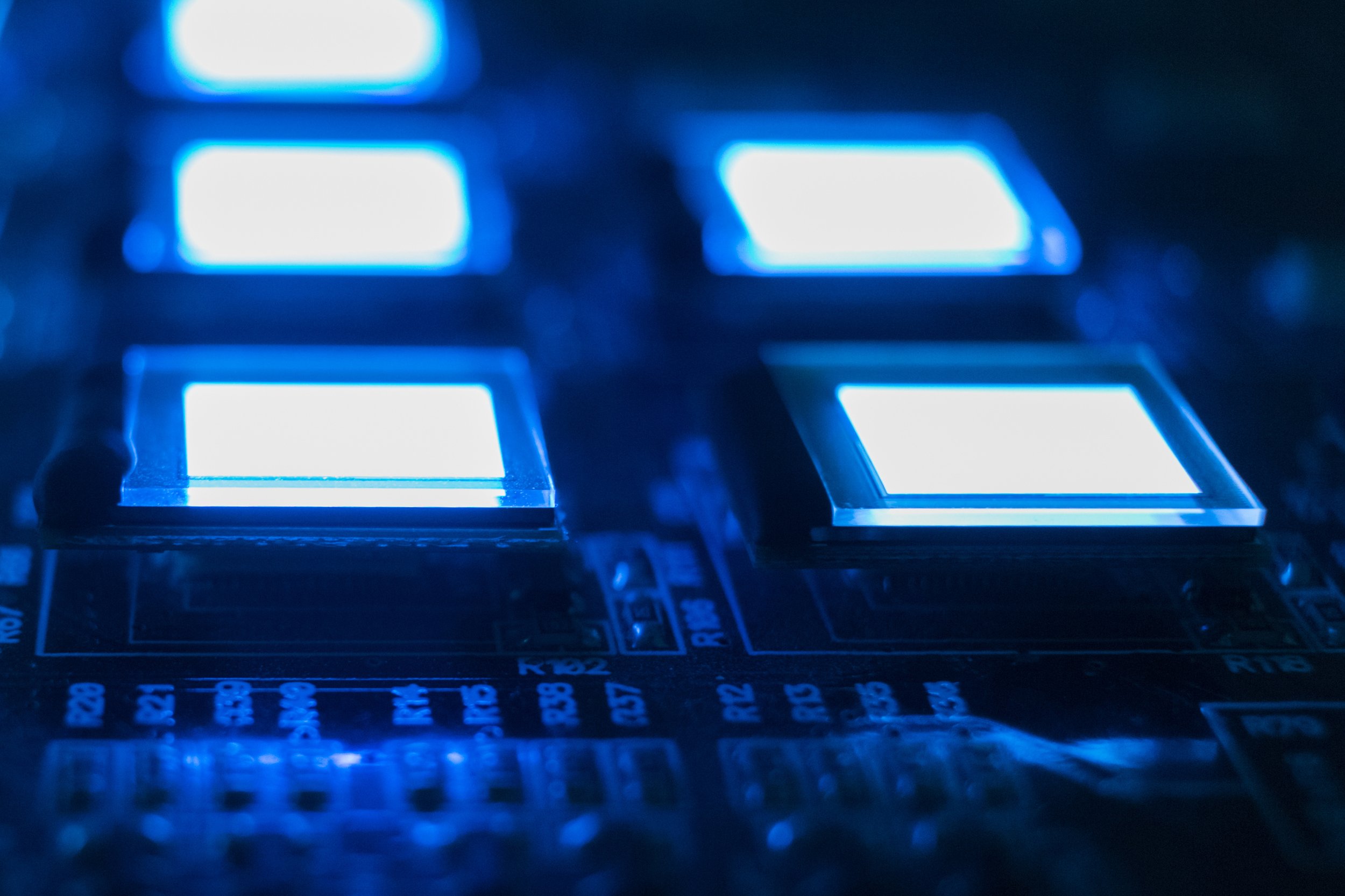
LEDs for Displays and Large-Area Lighting
With our software, you can design your OLED stack or perovskite LEDs and have a better understanding of the device’s physics. Our instruments allow you to perform electrical and optical characterizations. The device stability can be estimated with a patented LED accelerated aging and lifetime procedure.
SALES SUPPORT
Email: info@fluxim.com
Software & General Enquiries:
Tel.: +41 44 500 47 70
Hardware Enquiries Tel.: +41 44 500 47 74
Simulation & Design of LEDs
Use Setfos Drift-Diffusion to simulate the current-voltage (IV) characteristics, transient signals, and results obtained by impedance spectroscopy.
In combination with Paios and Phelos, the simulation gets even more powerful by fitting automatically the experimental results.
Going from a millimeter-scale OLED to a large-scale device for lighting is a big challenge.
Use Laoss to optimize metal grids to enhance conductivity, mastering electro-thermal effects, or to couple the OLED with complex optical elements or surface structuring.
Optical and Electrical Characterization of LEDs
Paios performs a variety of electrical and optical characterizations. You can determine the charge carrier mobility, trap density and distribution, recombination, injection barriers, doping-densities, series resistance, capacitance, and other working parameters of an OLED.
Phelos measures the electroluminescence (EL) of an OLED over a range of emission and polarization angles. The photoluminescence (PL) signal of a given light-emitting material can be also collected. You can also determine the position and orientation of the dipoles in the emission layer.
Litos is the primary choice to understand the degradation behavior of organic, perovskite, and quantum-dots LEDs, thanks to the wide range of stressing techniques inside a highly-controlled experimental environment, full automation, and the possibility to be interfaced with Paios.







